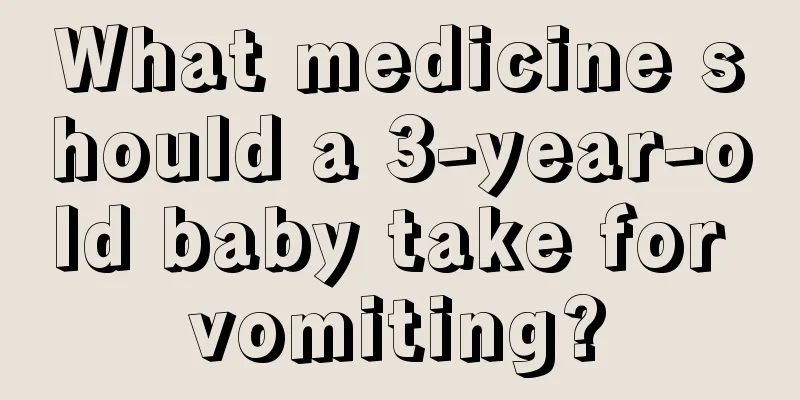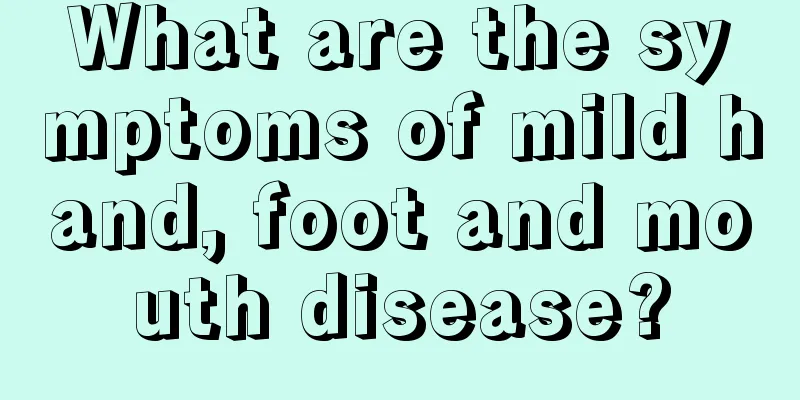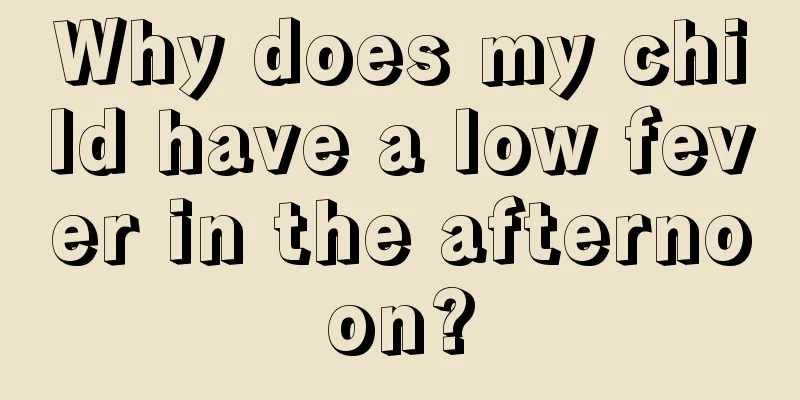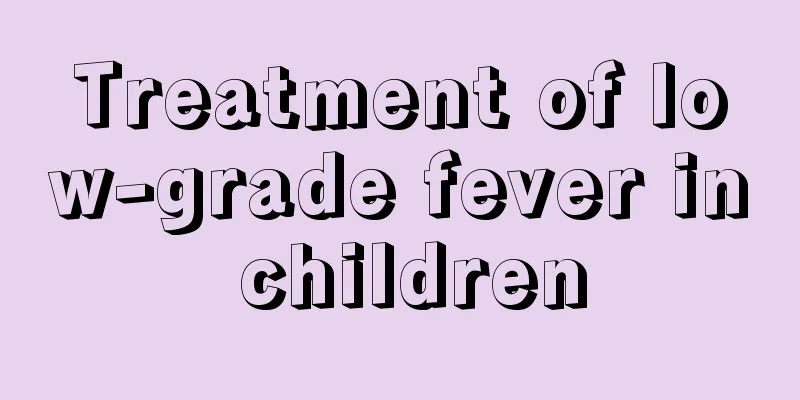What should I do if my child has a fever repeatedly during the day?
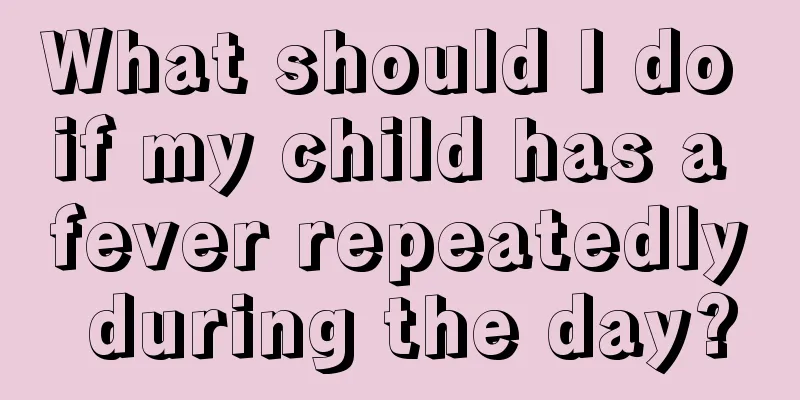
|
Some parents find that their children always have a fever whenever they are sick. After seeing a doctor and getting a fever-reducing injection or taking antipyretic medicine, the fever will go away, but it will come back again not long after. The fever always comes and goes repeatedly within a day. Many parents are eager to know what to do if their children have repeated fevers throughout the day? What measures should be taken? As soon as the baby has a fever, parents worry that it will damage the brain. In fact, fever is just a symptom. Parents need to find out what's wrong with the child through the fever. When the child has a fever, parents only need to know how to deal with it. As for diagnosing the cause of the disease, it should be left to a professional doctor and there is no need to worry too much. The most common cause of fever in children is respiratory tract infection, which is often accompanied by respiratory symptoms such as coughing, runny nose, sneezing, and even shortness of breath. The second most common cause is digestive tract infection such as autumn diarrhea and acute gastroenteritis, which are often accompanied by diarrhea, vomiting, abdominal pain and other symptoms. This fever often lasts for 3 to 5 days, and the body temperature will quickly return to normal after anti-infection and antiviral treatment. If the child's fever lasts for more than 5 to 7 days and does not improve after the above treatment, a careful and systematic examination is needed based on the cause of the fever in order to rule out other febrile diseases, such as infectious mononucleosis, mucocutaneous lymphadenopathy, connective tissue disease, and other febrile diseases. In fact, only diseases such as encephalitis and meningitis where the brain itself is damaged by viruses may affect intellectual development, and it is not caused by high fever. The temperature control center of young children has poor stability, and a mild viral infection may cause a high fever of 40°C. The main causes of fever in children of different age groups will also be different. - Physical cooling or taking antipyretics first Some children have a fever for several days. If they need to reduce the fever, when is the best time? Should physical cooling be performed first? Professor Hou said that children's fever is the body's response to disease, which plays a positive role in mobilizing the body's disease prevention ability. As the primary disease improves, the body temperature will gradually return to normal, and antipyretic drugs can be taken orally at home. Parents should not be anxious when their children have a fever. If the child's temperature is below 39°C and the child is in good mental state, oral antipyretic drugs can be used for treatment. It should be noted that antipyretic drugs achieve the purpose of reducing fever through sweating. If the temperature does not go down after taking the medicine, the child can be fed hot water to induce sweating, or given a hot water bath to help reduce the fever, or repeatedly wipe the child's back, armpits, groin, limbs skin and other areas rich in blood vessels. If the child's temperature exceeds 39°C, and he is lethargic or has a history of high fever convulsions, he can take oral antipyretics at home and then be sent to the hospital for treatment in time. It is not advisable to use antipyretics and alcohol baths for newborns. You can take off their outer clothes or reduce the amount of quilts to dissipate heat, or use hot water baths to cool down. Sometimes children react too strongly to illness and antipyretics are not effective, so hormones can be used to reduce fever. Parents should also make sure that their sick children get enough rest in bed to reduce physical exertion. After having a fever, the child has a poor appetite. He can eat some liquid food, eat less or no greasy food, drink more water, and add a small amount of salt to promote sweating, which is beneficial to lowering body temperature and excretion of toxins and preventing dehydration. - Do not take antipyretics at will Normally, the family should have a thermometer and antipyretic drugs for emergency use. Children with fever should have their temperature measured every hour. Antipyretic drugs include ibuprofen, chlorpheniramine, pediatric antipyretic suppositories, etc. Traditional Chinese medicine can also be used, but because traditional Chinese medicine has a slow antipyretic effect, Professor Hou Wei said that it is not recommended for parents to use traditional Chinese medicine, especially for reducing fever in infants and young children. Do not take more antipyretics or increase the dosage. Generally speaking, when a child has recurring fever, it is best to take the child to the hospital for a detailed examination and control the fever with medication under the guidance of a doctor. As a parent, do not give your child antipyretics at will. You can use physical cooling methods to cool your child down. In addition, when a child has a fever, you must pay more attention to caring for the child, let the child get enough rest, and drink more water. |
<<: How to deal with a child having a fever at night?
>>: What should I do if my child is constipated and can’t defecate?
Recommend
Can a one-year-old baby drink yogurt?
Many parents have doubts about whether one-year-o...
Reasons for weaning babies at a few months
The most important diet for a newborn baby is sti...
Are children's antidiarrhea tablets good?
When children have severe diarrhea, many people w...
Why is the tongue coating thick on an eight-month-old baby?
The tongue coating refers to the surface of our t...
What to do if your child has precocious puberty?
Many young children have problems with precocious...
What to do if your child has a runny nose
Cold is a very common disease. Many people treat ...
What to do if your baby has conjunctivitis
It is said that eyes are the windows to the soul....
How is encephalitis diagnosed in children?
We all know that newborns can only cry when they ...
Should I feed my newborn baby when he is hungry?
Many parents think that babies should not be spoi...
Treatment of viral myocarditis in children: these measures must be understood
If viral myocarditis occurs in a child, parents m...
What should I do if my child has nose inflammation?
With the rapid development of industrialization, ...
How is pink eye transmitted?
Conjunctivitis is a contagious eye disease, and t...
How to solve the problem of phlegm in children’s throat?
Some mothers find that their babies make a whirri...
What should I do if my child has a fever and diarrhea?
Nowadays, various diseases are often seen, especi...
The timing and order of teeth growth in children
Children go through various stages of growth from...
